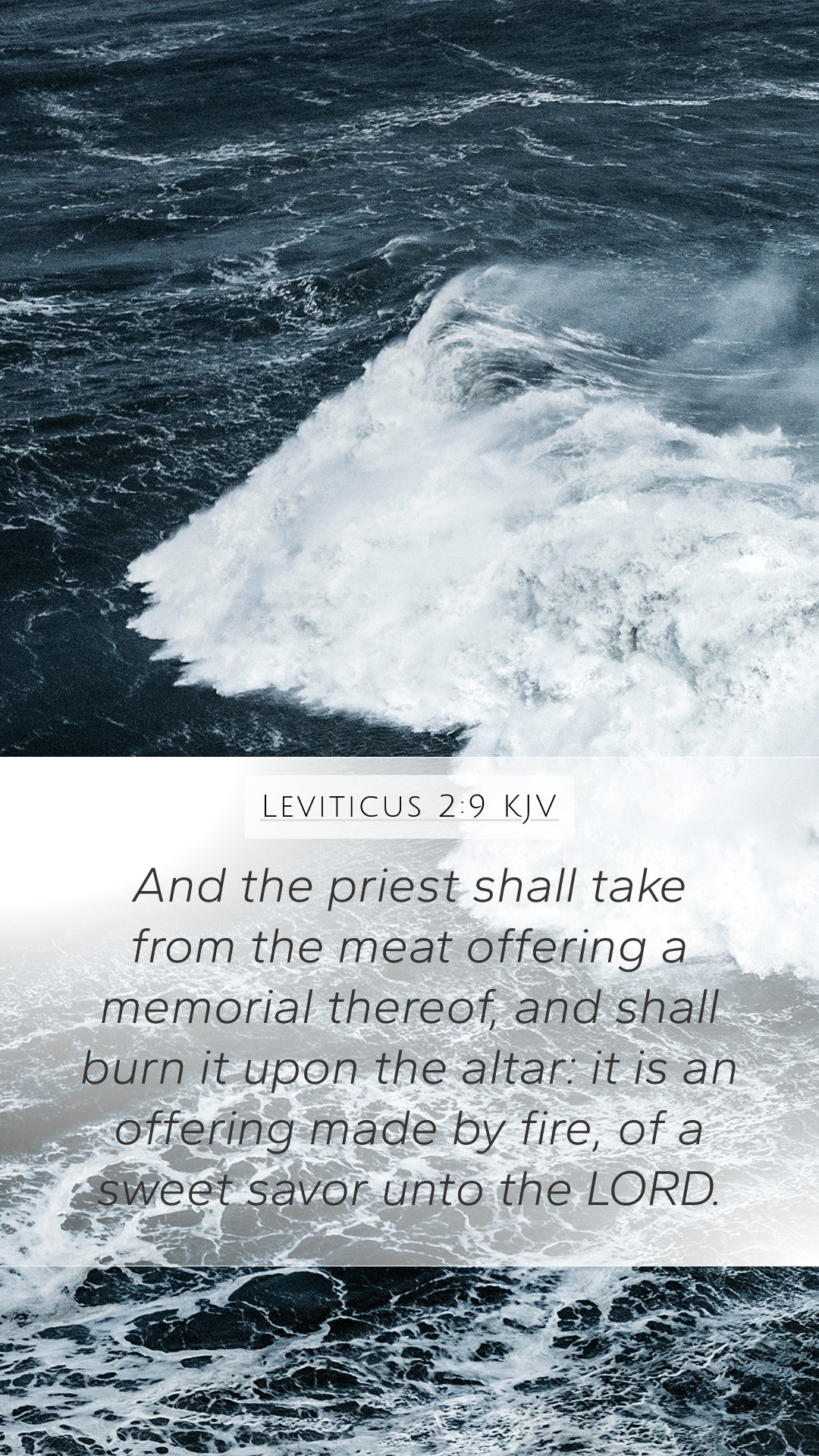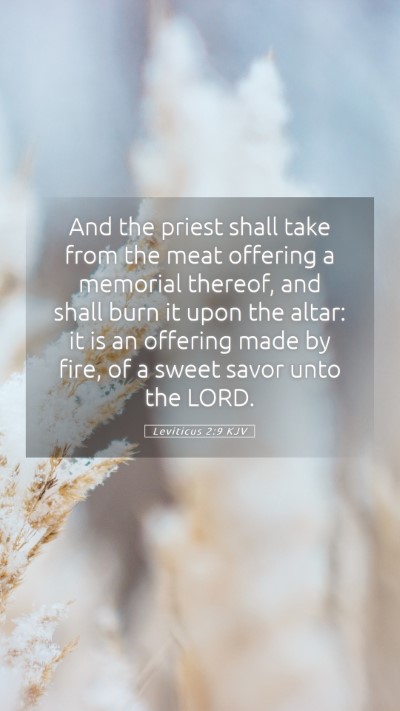Understanding Leviticus 2:9
Leviticus 2:9 states:
"And the priest shall take from the meat offering a memorial thereof, and shall burn it upon the altar: it is an offering made by fire, of a sweet savour unto the LORD."
Bible Verse Meaning
The verse is part of the detailed instructions regarding the meat offering, also known as the grain or cereal offering. This offering signifies gratitude and acknowledgment of God's provision. Below we combine insights from public domain commentaries to provide a comprehensive understanding.
Commentary Insights
-
Matthew Henry's Commentary:
Henry emphasizes the importance of the sweet savour being a symbol of God's acceptance. The act of offering is not merely a ritual; rather, it signifies the worshiper's devotion and gratitude to God. It reflects the relationship between God and man, where the believer recognizes God's bounty and responds with an offering that honors Him.
-
Albert Barnes' Notes:
Barnes highlights that the priest's role is crucial as the mediator between the worshiper and God. The memorial aspect of the offering serves to remind both God and the people of the devotion represented by this act. The fire signifies purification and the divine acceptance of the offering, which carries essential theological implications about holiness and worship.
-
Adam Clarke's Commentary:
Clarke points out the communal nature of the offerings, where the priests partake in the worship process. The meat offering in particular serves as a reminder of the sustenance God provides, and its acceptance by fire indicates God's presence among His people. The ritual underscores the significance of offering the first fruits, symbolizing the acknowledgment of God’s blessings in their lives.
Biblical Exegesis
This verse serves as a reminder of the personal and communal responsibilities in worship. The offerings were an important mechanism for expressing one's reliance on God, engaging the community in the acts of devotion, and playing a pivotal role in the Temple worship structure.
Application to Daily Life
In modern contexts, the principles underlying Leviticus 2:9 can guide believers in their approach to giving and worship. Contributing efforts, time, or resources substantially reflects an individual's devotion to God. Furthermore, the idea of presenting a 'sweet savour' corresponds to performing acts of kindness and love which are pleasing in the sight of God.
Cross References
- Genesis 8:21: Highlights the pleasing aroma of sacrifices to God.
- Exodus 29:18: Discusses the significance of burnt offerings in worship.
- Philippians 4:18: Indicates that offerings are a sweet-smelling sacrifice, acceptable to God.
Conclusion
Understanding Leviticus 2:9 goes beyond surface-level readings. By engaging with various biblical commentaries, one can appreciate the deeper meanings behind worship, sacrifice, and the relationship between God and humanity. This verse exemplifies how worship through offerings symbolizes gratitude and recognition of divine providence, a principle that still holds relevance in contemporary faith practices.
Further Bible Study Resources
For deeper study, consider exploring:
- Bible study groups focusing on Old Testament teachings
- Online Bible study courses regarding sacrifices and offerings
- Guides on interpreting the Levitical laws and their significance today


